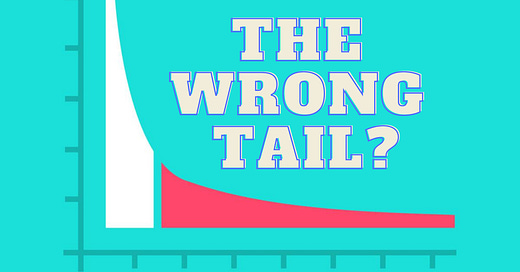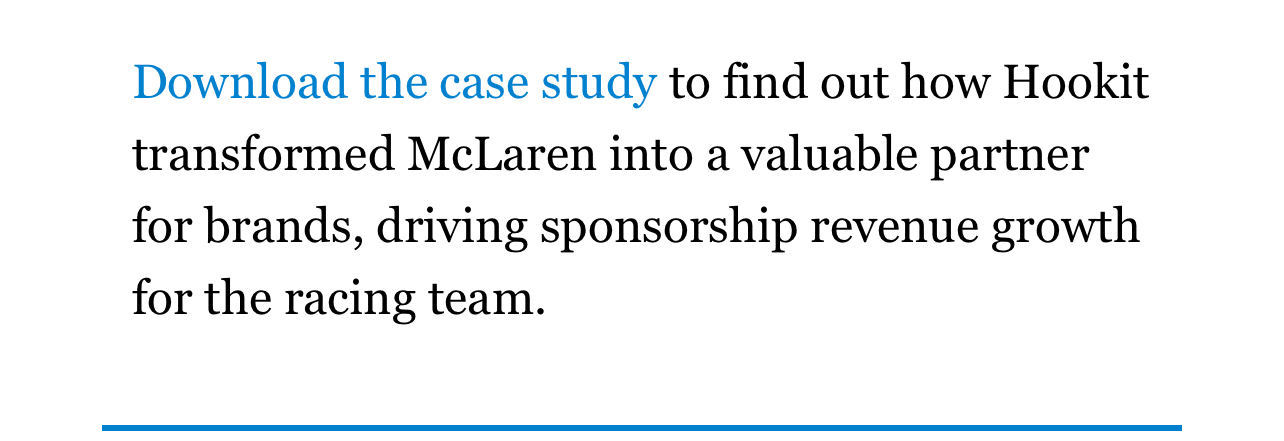What Bill Sinrich knew about plumbing; 10 questions to ask before you pull The Wrong Tail; The Bosman of NFTs; Good brains for a web3 brainstorm; The final 20 tickets for Wise UP;
Overthinking the sports business, for money
Sportbiz Plumbers lurk beneath the surface of OTT
This week’s pod reviews the state of sport’s OTT marketplace, but is really a conversation about plumbing.
Every week there’s an new announcement of a sport’s body going over the top, direct to the fan, with a shiny new Sport+ service, from the Premflix saga to the local badminton club.
So we wanted to go below the surface, to talk about the pipes - or digital media infrastructure - that sits below the surface, making things work (or not).
Some things I learnt:
Stop saying OTT: The term OTT used to make me sound clever. Now it exposes my ignorance. It’s a lazy acronym (or initialism, discuss) and is often used by mistake as a catch-all to describe a sport’s broad attempts to build a direct relationship with their fans. Words matter.
Pipes are a commodity item. So how do you differentiate between plumbers. Or to be specific, are Deltatre’s pipes the same as StreamAMG’s or Endeavour Streaming’s pipes? Or are they better pipes #BetterPipes
If all pipes are equal give or take, then the buying decision comes down to other attributes: price, brand, scale, consultancy layer.
What if I buy the wrong plumber? Once the pipes are fitted, am I stuck with them forever, or can I swap in and out quickly and cheaply? (See also, Blockchain providers).
Betting firms will pay for the pipes but that’s different from saying they’re free. Some smaller sports could easily become ‘betting sports’ purely by building OTT on the cheap, trying to cut costs today by allowing gambling companies to build their infrastructure in return for important and valuable rights.
Executive fear is a thing. Nobody wants to be the person making an expensive mistake in public (‘That’s a very brave decision, Minister’). So they don’t make a decision, pushing the job further down the road, for the next regime to deal with.
Clarity of purpose is essential but often lacking. As in, why are you building this expensive direct to customer media channel? Growing the game, competitive tension, vanity? All are viable, but it’s nice to know going in.
If you create MySport+ as a competitive threat to broadcasters, you have to be prepared to carry out the threat - like a nuclear bomb or telling your kids they won’t get pizza if they don’t tidy their room. (The latter of these two scenarios is the more challenging in my experience).
Non-broadcast production quality is becoming expensive and may be irrelevant. How good is good enough when it comes to the clip economy? Seb Carmichael Brown mentioned on UP262 - see below - that creator production budgets are hitting near broadcast levels. The line between ‘social media’ and ‘media’ is blurred and becoming more so. Expectations rise, the need to look ‘professional’ weighs on the CEOs mind when she sees that clip on fan generated clip on TikTok. The authenticity of UGC falls. Everything becomes television. Then a new platform grows up, and the cycle starts again. It’s like happiness, it’s a goal you’ll never reach.
Hear that Esport Economics episode on the reality of today’s sports creator marketplace:
Prize for most expensive and misunderstood theory of all time: The Long Tail
Twenty years ago, I talked to the late Bill Sinrich about the long tail of sports media content.
Bill ran TWI, which became IMG Media.
This was two years before Chris Anderson wrote his seminal essay in Wired and four years before his subsequent book of the same name was published to great acclaim.
Sinrich saw early the promise of the internet to disrupt sports media. The problem he said, will be execution.
Specifically, sports rights holders will first resist through fear, and then, when it becomes inevitable they’ll get it wrong, in several different ways.
If we were summing up sport’s great OTT adventure in 2022, I think Sinrich was two from two.
The bit that wasn’t clear - back in 2002 - was to what extent the long tail applies specifically to sport, or at least every sport in every market.
I’m still unclear on this.
The Long Tail is the defining strategic thought of the internet’s first iteration.
The genius of Anderson’s book/theory is the sense of apparent inevitability, the hallmark of all great stories.
Remove the limitations of bricks-and-mortar retailers—like scarce shelf space, which leads companies to concentrate on the most popular products—and the infrequent sellers or undistributed merchandise suddenly start to acquire more value.
But, the idea was so beguilingly simple that it excited the imaginations of people from every business sector, regardless of whether it was the right fit or not.
Slate wrote about The Wrong Tail in 2006, in response to Anderson’s book launch. The issue, as ever, is specificity.
Everything you take in—cult blogs, alternative music, festival films—starts looking like the Long Tail in action. But that’s also the problem. The Long Tail theory is so catchy it can overgrow its useful boundaries. Unfortunately, Anderson’s book exacerbates this problem. When you put it down, there’s one question you won’t be able to answer: When, exactly, doesn’t the Long Tail matter?
The Bosman of NFTs: If you’re selling tokens, you need to follow Friel v Dapper
What happened?
Someone you’ve never heard of is suing Dapper Labs.
Dapper…are accused of violating the Securities Act of 1933 by marketing and selling “unregistered securities.” Jeeun Friel v. Dapper Labs could reshape the nascent marketplace for non-fungible tokens in sports.
Why?
To determine what an NFT is, in a legal and/or financial sense.
Is a Top Shot Moment just something to collect, like a baseball card or Panini sticker?
Or, is it something to trade in a financial sense, like an equity share or a security?
Why do we care?
It gets to a big question related to the ‘early days of web3’: do fans need protecting?
If a Moment is classed as a security, then purchasers (Dapper’s word for buyers/fans) should be afforded the same protections as share traders.
Good piece by Michael McCann and Jacob Feldman on Sportico:
If Moments are securities, Dapper’s business practices for Moments must adhere to the Securities Act, which strictly regulates the marketing and sale of securities. They are also subject to oversight by the Securities and Exchange Commission.
Where’s it going?
Mentioned in last week’s letter, Dapper Labs are on a new biz tear up, using NBA Top Shot as the proof of concept for other major sports bodies’ entry in to web3, NFT, Blockchain.
If blockchain is the future of the internet, then Dapper are the most prominent of a few companies seeking to position themselves as gatekeepers, a very lucrative pinch point between fans and the sports teams and stars they love. Dapper was valued at $7.6 billion last year when it raised $250 million.
Who said what?
“We should not try to turn every ‘thing’ which might be purchased and sold into a security,” one SDNY judge IN 1933…
See also: NBA doing Fantasy League NFTs.


See also: this is true.
See also: All of this will be talked about when we meet at The Emirates Stadium from 5.30pm on Wednesday 21st September for Wise UP, The Unofficial Partner Web3 Brainstorm.
And we have some very good brains in the storm.
There’s only 20 tickets left, just sayin’…
Promotional phrasing that Zak Brown will absolutely love
From Sports Techie
I’m thinking McLaren’s boss will take the view that the team was popular among sponsors before Hookit got involved.
15% off Leaders tickets? Just click the link
Leaders Week London returns at the slightly earlier than usual date of 26th-29th September 2022. Over 70% of LW LDN attendees are at Director level or above. From the Premier League to WWE, BT Sport to DP World Tour, they’ll all be there this September. In addition to the talks going on across three stages, there’s networking breakfasts, forums (like the Brand and Sponsorship Forum), think tanks (the Broadcast Disruptors Think Tank for example), tech showcases on the exhibition floor and the list goes on – you can tailor your Leaders Week London experience to best suit you.
The two day Summit, part of Leaders Week, will be held at Twickenham Stadium on 28th and 29th September. Even better, you can use UP15 for a 15% discount on your Summit passes. Visit leadersinsport.com/UP for more information.





